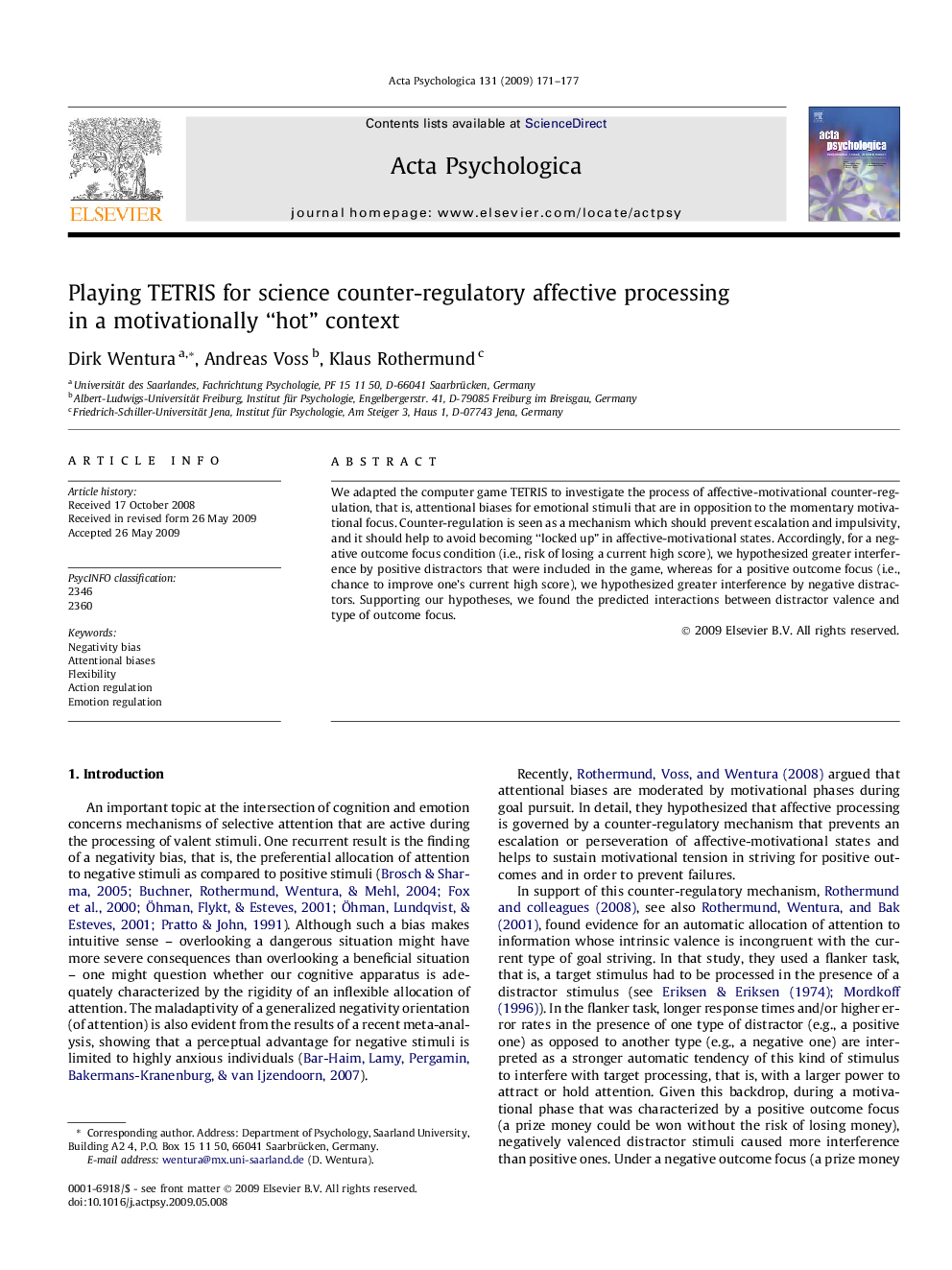| Article ID | Journal | Published Year | Pages | File Type |
|---|---|---|---|---|
| 920445 | Acta Psychologica | 2009 | 7 Pages |
We adapted the computer game TETRIS to investigate the process of affective-motivational counter-regulation, that is, attentional biases for emotional stimuli that are in opposition to the momentary motivational focus. Counter-regulation is seen as a mechanism which should prevent escalation and impulsivity, and it should help to avoid becoming “locked up” in affective-motivational states. Accordingly, for a negative outcome focus condition (i.e., risk of losing a current high score), we hypothesized greater interference by positive distractors that were included in the game, whereas for a positive outcome focus (i.e., chance to improve one’s current high score), we hypothesized greater interference by negative distractors. Supporting our hypotheses, we found the predicted interactions between distractor valence and type of outcome focus.
